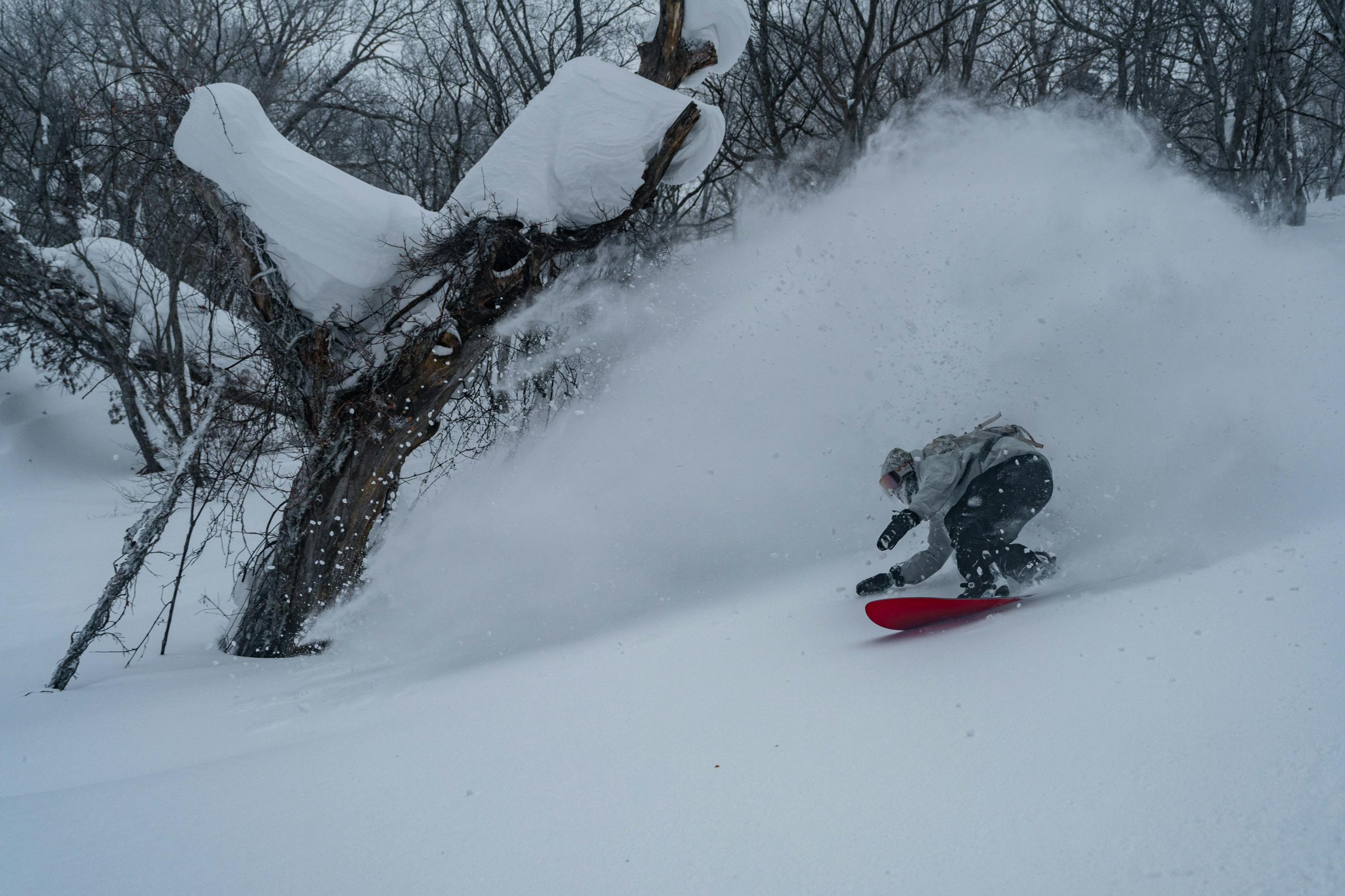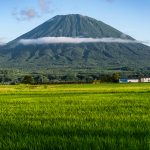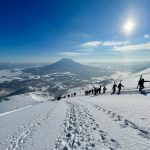Updated: March 2025
Get ready to make your way to Hakuba, an amazing winter wonderland that is a must-visit for skiing and snowboarding enthusiasts. To help you plan your visit, we have compiled in this easy-to-understand Hakuba ski guide everything you need to know for your winter adventures.
Hakuba Ski Guide: When To Go
The ski season in Hakuba usually begins in late November and continues until early May, depending on the place and altitude. Generally, the snow base starts to form by mid-December, which is also when most restaurants and accommodations are ready for visitors.
The most snowfall is seen in January and February, and it is during this time that the slopes are most crowded due to the Australian school holidays and Chinese New Year.
February is a great time to visit, as it is less crowded and receives an average of eight (8) feet of snow. March is also a good option, as it has a similar amount of snow and the temperature is warmer, allowing for better views of the Japanese Alps.
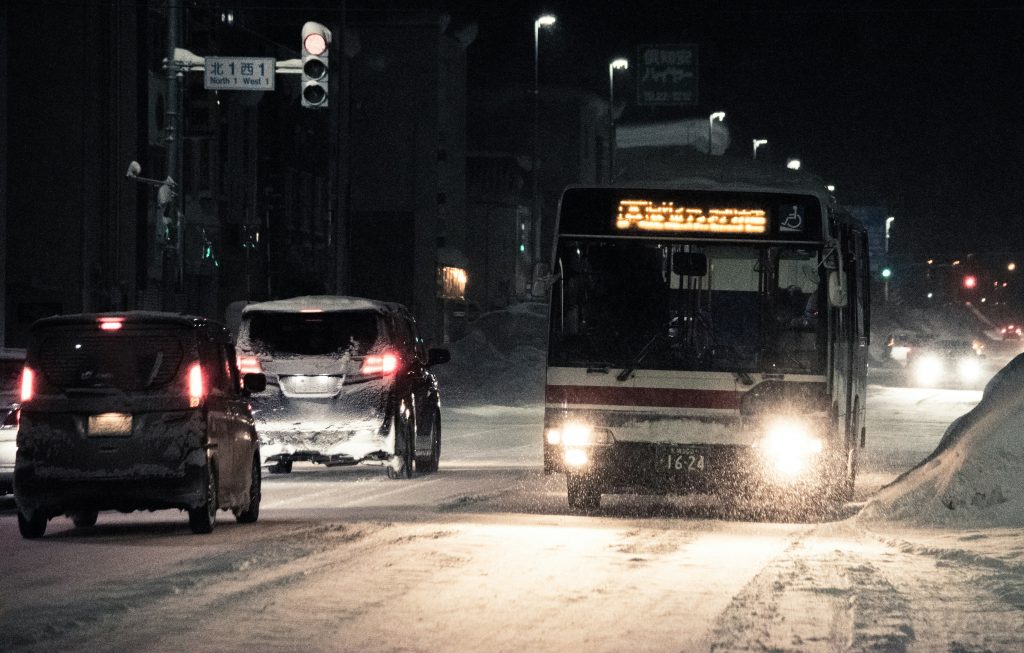
Hakuba Ski Guide: How To Get There
Several airlines, including Qantas and Jetstar, offer daily flights to Tokyo, with prices as low as $500 one-way. However, if you choose to fly with Jetstar, it is important to be aware of the restrictions on luggage size. To avoid extra costs at the airport, it is best to arrange for this in advance.
Bus or Train
If you’re in Tokyo, the most convenient way to get to Hakuba is via bullet train or bus. Taking the bullet train is a thrilling experience as it speeds you to Nagano in just three hours. However, it requires three connections and can be difficult to manage with heavy luggage. Alternatively, you can opt for a bus, which is less complicated but may take longer.
Transfer
If you are travelling with a family, booking a transfer from the airport with the Nagano Snow Shuttle is likely the best option as it is more affordable and requires less effort than travelling between train stations. However, it may take a bit longer to get to your destination at approximately five hours.
Hakuba Ski Guide: Where To Ski
The Hakuba Valley includes ten (10) ski resorts around a central town. If you decide to purchase the Hakuba All Valley Pass, you will be able to ski at all the resorts in the Valley without having to wait in lines each day.
Additionally, some resorts are connected via lift access, so you can ski two in a single day. This is great for saving time, but if you choose to get a single-day ticket, it may be slightly cheaper.
We have already chosen the top five destinations for skiing in this Hakuba ski guide.
Tsugaike Kogen
Tsugaike Kogen is a favorite amongst both rookies and experienced skiers due to its gentle and broad runs. Kane-no-naru-oka, spanning 1200m in width, is an ideal choice for those who are just starting out.
Once you’re done on the slopes, why not explore the bustling main street at the foot of the mountain, where you can find a wide range of restaurants and izakayas (Japanese-style pubs) to enjoy a meal and drinks?
Cortina & Norikura
Cortina is renowned for its abundance of backcountry powder snow. Ski patrol enables riders to go off course and experience the thrill of riding in waist-deep powder snow while gliding between well-spaced trees. Despite its limited size, Cortina is linked to Norikura, which provides a greater range of on-piste terrain.
Iwatake
For skiers of all levels, Iwatake is an ideal location to challenge and hone their skills. Beginners can follow the easy run from the top of the mountain to the base, while intermediate skiers can take one of the many branching routes for more of a challenge.
Furthermore, advanced skiers can find plenty of thrills on the high-speed runs, powder skiing, and terrain park. All of this can be found just 10 minutes away from Hakuba station.
Happo-One
Boasting the region’s tallest peak, 2,696m, Happo-One offers a wide variety of terrain for experienced skiers and snowboarders. From steep runs to high vertical drops and even a terrain park, it has something for everyone. Beginner-level skiers can also find something to enjoy, but the resort is best suited for more advanced riders.
Happo Village, located at the base of the mountain, has plenty of amenities such as restaurants, hot springs, and shops.
Hakuba 47 & Goryu
Located near Happo-One, these two ski resorts are perfect for the entire family and can be accessed using the same lift ticket. 70% of Hakuba 47 and 65% of Goryu runs are suitable for those who are either new or intermediate skiers.
For those who are more advanced, Goryu has three black trails, but it is not allowed to ski in the backcountry. Conversely, Hakuba 47 allows backcountry skiing, however, one must first register with the Double Black Diamond Club. The Hakuba 47 ski resort is situated close to Goryu Village, whereas Goryu is near Echoland Village.
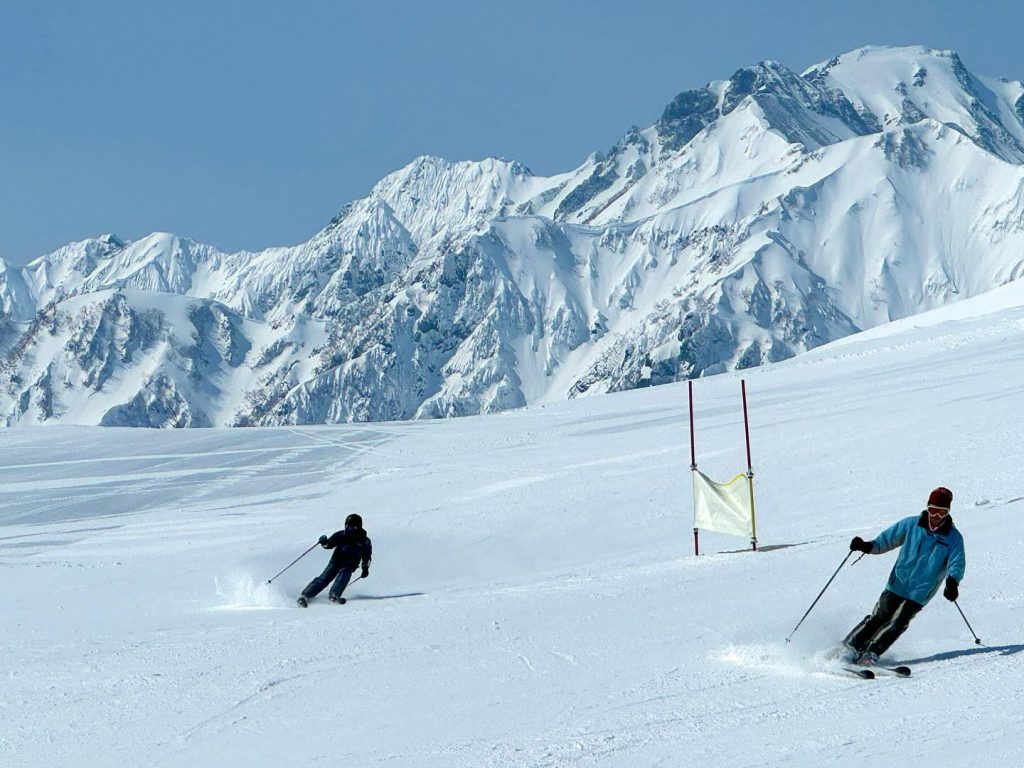
Hakuba Ski Guide: Where To Stay
If you’re looking for convenience during your stay, we also have it here in our Hakuba ski guide. You can consider booking a hotel close to a shuttle bus stop. Not only is this an economical way to visit the various ski resorts, but it’s also a great way to explore the many neighbourhoods of Hakuba. From Echoland to Wadano, you’ll be able to take in the sights and sounds of this beautiful mountain town.
The Happo, Tokyu Hotel, and Phoenix Hotel & Chalets are all conveniently located with shuttle stops just outside. The Phoenix Hotel, run by the friendly Sally and Peter from Australia, will chauffeur you to dinner or the slopes whenever you want.
Even if you don’t speak Japanese, the Australian staff make it easy to communicate. You can also get a unique Japanese experience by sleeping on tatami mats. For relaxation, check out the hotel’s spa – it doesn’t use onsen water, but it’s a great place to unwind. Enjoy a soak in the hot tub or treat yourself to a massage.
The Happo, on the other hand, is a luxurious boutique hotel that is located just steps away from a shuttle bus stop and a two-minute walk to the Hakuba bus station. Guests can easily access Cortina and other nearby towns via bus from the station, and the hotel is also conveniently located close to many restaurants and bars.
If you’re a big group visiting Hakuba or looking for more privacy, renting a chalet would be a better option. Villa El Cielo, Chalet Hérisson, or Sky Park Happo Yuki are the top chalet choices in Hakuba, given their prime location, stunning views of the snow-covered mountains, and beautiful amenities.
Hakuba Ski Guide: Where To Eat
Where to eat is also an important part of this Hakuba ski guide article. Hakuba offers a wide selection of cuisine, ranging from Japanese staples like noodles, sushi, and yakiniku to more familiar Western fare like pizza and burgers. Happo Village is home to Maeda, where you can savor a comforting bowl of noodles, or Sharaku, with its delectable seafood and sushi.
In Echoland, Zen is celebrated for its handmade soba and tempura, while Kobeya in Wadano has an impressive selection of Kobe and Wagyu beef that you can prepare in front of you.
If you’re looking for a night out in the Hakuba area, Wadano and Echoland are the perfect places to go. Start the night off with a delicious, hand-rolled pizza at Morino Lodge. Then, head over to The Rabbit Hole for burgers and beers. Don’t forget to stop by Hakuba Brewing Company or Hakuba Brew Pub to sample some local beer. Finally, end your night at either Cross Bar or Sugar Cocktail Lounge for some DJ sets.
Pilar, located at the top of Happo-One’s upper chairlift, offers an unforgettable culinary experience. With a mix of Japanese and European flavours, this café and restaurant is the perfect spot to take a break from your time on the slopes and take in the stunning mountain views. Only open for lunch, Pilar is the ultimate spot for a special meal in Hakuba.
During the peak season in Hakuba, restaurants tend to be quite busy and usually quite small. It’s advisable to reserve a table ahead of time from your lodging, and some hotels may also provide transportation to and from the restaurant. It’s essential to keep in mind that many eateries in the area are only open from December to March, so always be sure to phone ahead.
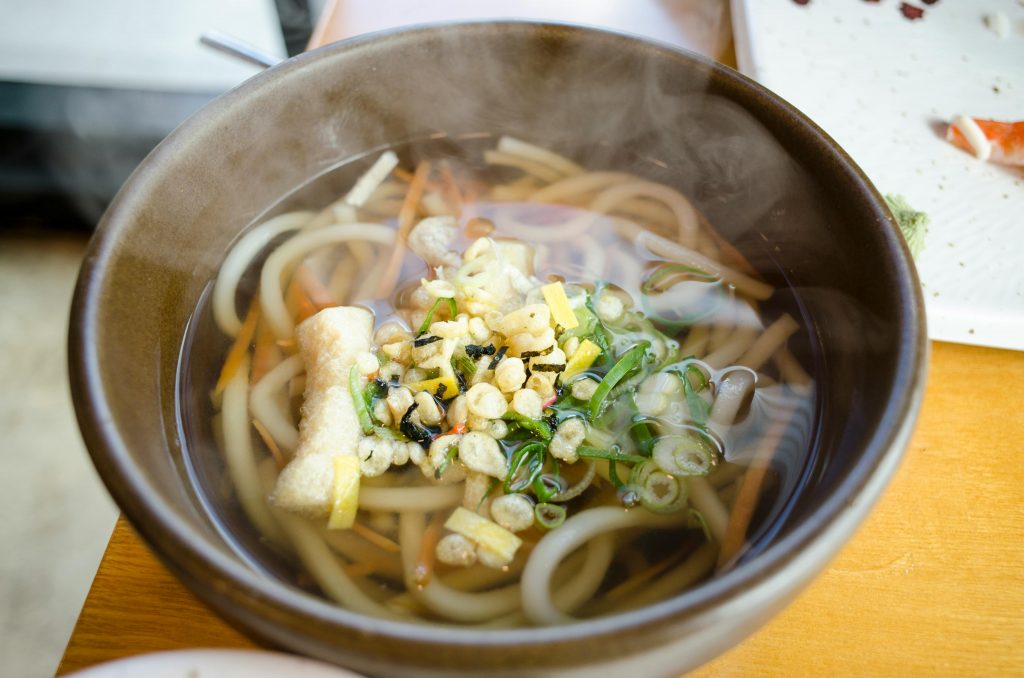
When Not Skiing, Relax In An Onsen
Hakuba Valley features four hot springs, and most hotels have an onsen to relax after a day of skiing. Additionally, there are twelve public baths located throughout the Valley, including four in the Happo-One area.
A must-try is Tenjin No Yu, situated at the Hakuba Highland Hotel, with its calming alkaline water and stunning views of the Japanese Alps, both indoor and outdoor.
For a complete list of onsen baths, prices, and opening times, you may consult the Hakuba Village website. When visiting, remember to adhere to onsen etiquette, such as covering up any tattoos, being prepared to go nude, tying up long hair, and keeping your towel out of the water.
What To When It’s Snowing Excessively
Believe it or not, Hakuba can sometimes experience too much snowfall, resulting in white-out conditions that make skiing and snowboarding unsafe. But there is no need to worry, as the region has many other activities to enjoy.
A popular day trip is visiting the snow monkeys at Jigokudani Park, which is renowned for taking baths in hot springs. Hakuba is approximately 90 minutes away from the monkey park; you can easily book day-tour packages or opt for other local activities such as origami, Taiko drumming, or making soba noodles.
To experience a bit of traditional Japanese culture, take the train to the nearby Matsumoto Castle, one of the oldest castles in the country.
Whether you are skiing or snowboarding, the Hakuba region offers an idyllic setting for everyone. Following this Hakuba ski guide’s tips and recommendations will help you embark on an unforgettable journey filled with culture and memories you’ll cherish forever. Embrace winter bliss in Hakuba, where each snowflake holds a promise of adventure and joy.

